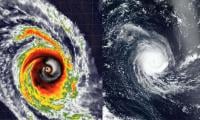Power tariffs need to go up, says IMF
ISLAMABAD: The International Monetary Fund’s (IMF) resident chief in Pakistan, Teresa Daban Sanchez, has said that the government would have to hike electricity tariff to ensure cost recovery of power generation and to grant long overdue autonomy to the State Bank of Pakistan (SBP) in line with the best international practices.
“Pakistan remains committed to the goals of the IMF supported programme and agreed to undertake key reforms of doing away with tax exemptions, elimination of quasi-fiscal circular debt, and SOEs losses,” Sanchez said in a webinar organised by the Sustainable Development Policy Institute (SDPI) here on Wednesday.
“Islamabad committed for market-determined and flexible exchange rate, strengthening of social safety nets and strengthening of institutions through Public Finance Management, SBP’s autonomy
and bringing reforms into the energy sector,” she added.
The IMF chief said that the Fund provided technical assistance on the autonomy of SBP on the request of the Pakistani authorities and only recommended autonomy keeping in view the best international practices. The IMF, she said, does not give dictates on SBP autonomy.
Sanchez said that the Pakistani authorities recalibrated the Circular Debt Management Plan including short and medium measures aimed at reducing circular debt through aligning power tariff with cost recovery levels, re-negotiating with IPPs to reduce generation cost, targeting subsidies and absorbing Power Holding Company debt and on the governance front bringing amendments into NEPRA Act and reducing transmission and distribution losses, ensuring recovery and ending theft.
Sanchez said that the long-standing deficiencies and the COVID-19 pandemic shocks have pushed the power sector to the edge as the overall circular debt was heading towards the Rs2.5 trillion mark.
She said that Pakistan required broadening of the tax base as the country could not afford to have only 2 million taxpayers from a population of over 200 million. The government is committed to move ahead by introducing reforms into slabs of personal income tax in line with best international practices and abolishing tax exemptions of general sales tax soon.
She also hinted that the IMF could consider to provide more financing on pattern of the Rapid Financing Instrument (RFI) if the situation arises to combat the COVID-19 pandemic’s third wave.
When asked what would happen if Pakistan declined to hike the electricity tariff by Rs5 per unit till the end of June this year, she said that the IMF programme was divided into different reviews and it would be assessed for moving forward when it comes under discussion.
To another query regarding extending of the IMF programme beyond September 2022, Sanchez ruled out the possibility and stated that in principle the duration and size of the programme would remain the same.
Answering another query, she said that the IMF programme possessed adjuster and spending on social sector could be jacked up if more spending is required to combat coronavirus’ third wave.
She dispelled the impression that the IMF programme resulted in slowing down of utilisation of funds under the Public Sector Development Program (PSDP) as implementation on projects got affected by the COVID-19 pandemic and some other factors.
While dwelling upon the current economic situation, economic outlook and potential risks, Sanchez highlighted that the GDP growth remained negative 0.4 percent for FY2020 yet rebounded since summer and now projected at 1.5 percent for the current fiscal year. Inflation remains volatile due to food, tariff and oil but it is projected to decline over the medium term.
The current account deficit stood surplus of 0.4 percent of GDP in the first half of the current fiscal year because of lower oil prices, import compression, and strong remittances. The foreign exchange reserves grew up by $13.4 billion.
She said that there were certain risks including high global uncertainty, policy slippages, implementation capacity, vested interests, oil prices and tight external financing.
In the aftermath of the COVID-19 pandemic, the IMF resident chief said that Pakistan received strong and decisive financial support from multilateral and bilateral partners as the IMF provided $1.4 billion through RFI and got additional $250 million from the World Bank and $300 million from ADB. Bilateral partners also provided debt servicing suspension initiative (DSSI) debt suspension from May 2020-December 2020 on an amount of $2 billion by G-20 and non G-20 countries. In the second phase of DSSI-2 through debt suspension extension till June 2021, Pakistan was provided a relief of $800 million by G-20 and non- G-20 countries, Sanchez added.
-
 Elon Musk Affirms Biographer’s Depiction Of Ambitious Mission To Protect Humanity’s Long-term Future
Elon Musk Affirms Biographer’s Depiction Of Ambitious Mission To Protect Humanity’s Long-term Future -
 Switzerland Freezes $880m Linked To Nicolas Maduro After US Arrest
Switzerland Freezes $880m Linked To Nicolas Maduro After US Arrest -
 King Charles Urged To Act 'pre-emptively' In Andrew Crisis
King Charles Urged To Act 'pre-emptively' In Andrew Crisis -
 Hilary Duff Becomes First To Mourn 'Lizzie McGuire' Costar Robert Carradine's Sudden Death
Hilary Duff Becomes First To Mourn 'Lizzie McGuire' Costar Robert Carradine's Sudden Death -
 King Charles Plans To 'throw' Andrew To The Wolves As Monarchy Under Threat?
King Charles Plans To 'throw' Andrew To The Wolves As Monarchy Under Threat? -
 Katy Perry's Ex-husband, Russell Brand, Pleads Not Guilty To Further Rape, Sex Assault Charges
Katy Perry's Ex-husband, Russell Brand, Pleads Not Guilty To Further Rape, Sex Assault Charges -
 ‘Mars’ Missing Water Mystery Takes A Surprising Turn As New Study Finds Regional Dust Storms Trigger Massive Water Loss Into Space
‘Mars’ Missing Water Mystery Takes A Surprising Turn As New Study Finds Regional Dust Storms Trigger Massive Water Loss Into Space -
 Prince William Fears Andrew Scandal Could Cast Shadow Over His Future Reign
Prince William Fears Andrew Scandal Could Cast Shadow Over His Future Reign -
 Snoop Dogg Jumps Into David Beckham, Brooklyn Family Feud With Strong Message: ‘No Father Is Perfect’
Snoop Dogg Jumps Into David Beckham, Brooklyn Family Feud With Strong Message: ‘No Father Is Perfect’ -
 'Monarchy Seems Quite Unstable Now', King Charles Warned
'Monarchy Seems Quite Unstable Now', King Charles Warned -
 UK To Bring Netflix, Disney & Amazon Prime Video Under New Broadcasting Rules
UK To Bring Netflix, Disney & Amazon Prime Video Under New Broadcasting Rules -
 Prince William Reacts As Earthshot Prize Dragged Into Epstein Controversy
Prince William Reacts As Earthshot Prize Dragged Into Epstein Controversy -
 Tropical Cyclone Horacio Becomes World’s First Category 5 Superstorm Of 2026: Latest Forecast & Risks Explained
Tropical Cyclone Horacio Becomes World’s First Category 5 Superstorm Of 2026: Latest Forecast & Risks Explained -
 Hilary Duff Recalls Brutal Thing She Did To Husband Matthew Koma After Losing Their Home In Los Angeles Wildfire
Hilary Duff Recalls Brutal Thing She Did To Husband Matthew Koma After Losing Their Home In Los Angeles Wildfire -
 Princess Beatrice, Edo Mapelli Mozzi Fall Into Marital Woes: ‘He Doesn’t Want Her Seen With Andrew’
Princess Beatrice, Edo Mapelli Mozzi Fall Into Marital Woes: ‘He Doesn’t Want Her Seen With Andrew’ -
 Meta’s Internal Memo Reveals How Executives Ignore Safety Warnings To Push Messenger Encryption Rollout Despite Risks To Teen Safety
Meta’s Internal Memo Reveals How Executives Ignore Safety Warnings To Push Messenger Encryption Rollout Despite Risks To Teen Safety



